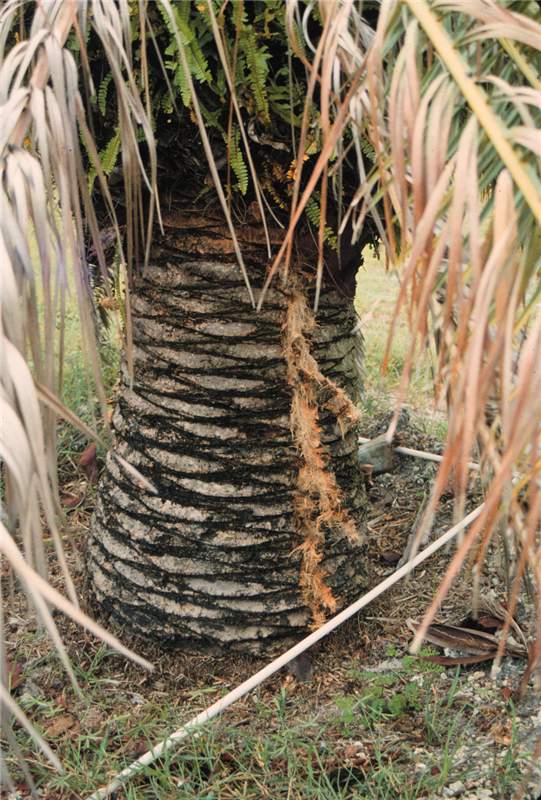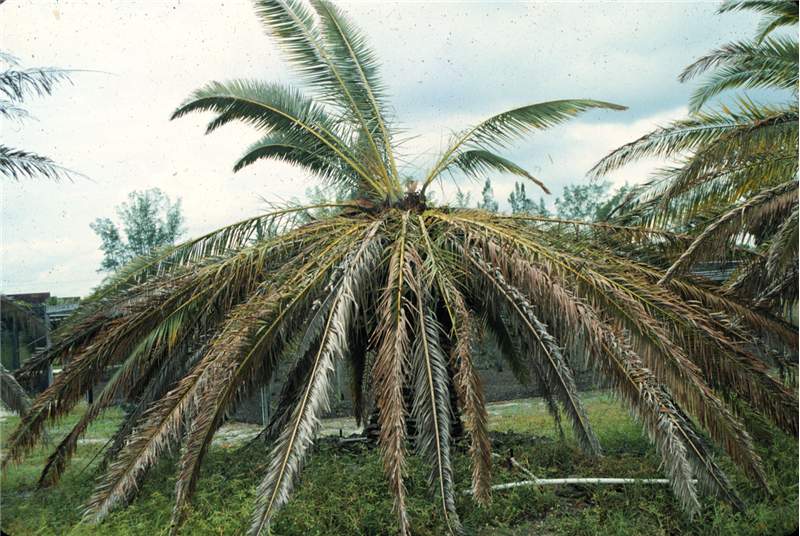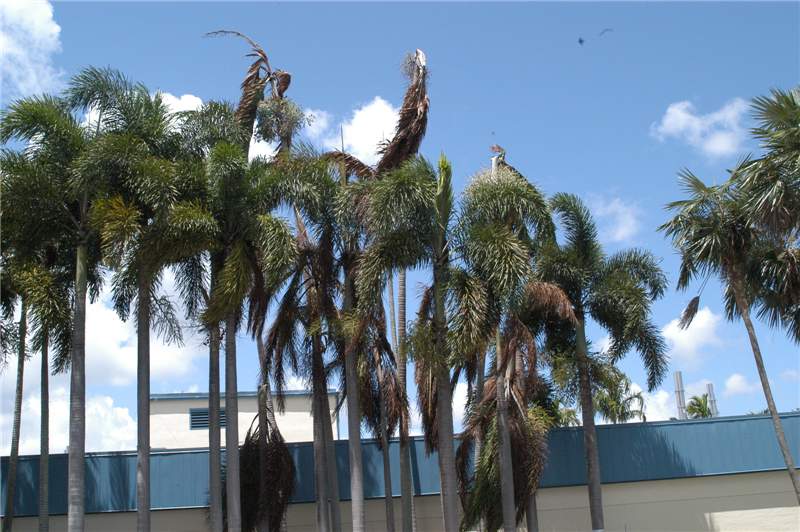Lightning Injury
|
Figure 1. Trunk bleeding caused by lightning. Photo by T.K. Broschat.
|
|
Figure 2. Trunk splitting in Phoenix canariensis caused by lightning. Photo by T.K. Broschat.
|
|
Figure 3. Sudden crown collapse in Phoenix canariensis caused by lightning. Photo by T.K. Broschat.
|
|
Figure 4. Collapse of twelve Veitchia mcdanielsii and Wodyetia bifurcata due to single lightning strike. Photo by T.K. Broschat.
|
Symptoms
Lightning injury symptoms are quite variable, but often include dark longitudinal streaks, "shot holes", bleeding, and splitting of the trunk, and sudden collapse of the crowncrown:
see canopy
(Figs. 1-4). Lightning strikes are usually fatal to palms. Palms struck by lightning may die quickly (within a couple of days) or slowly (up to 6 months following the strike).
Cause
Direct or indirect strikes by lightning.
Occurrence
Lightning injury is fairly common in areas receiving frequent electrical storms. Although tall palms are most susceptible, shorter palms adjacent to a struck palm can also be affected.





